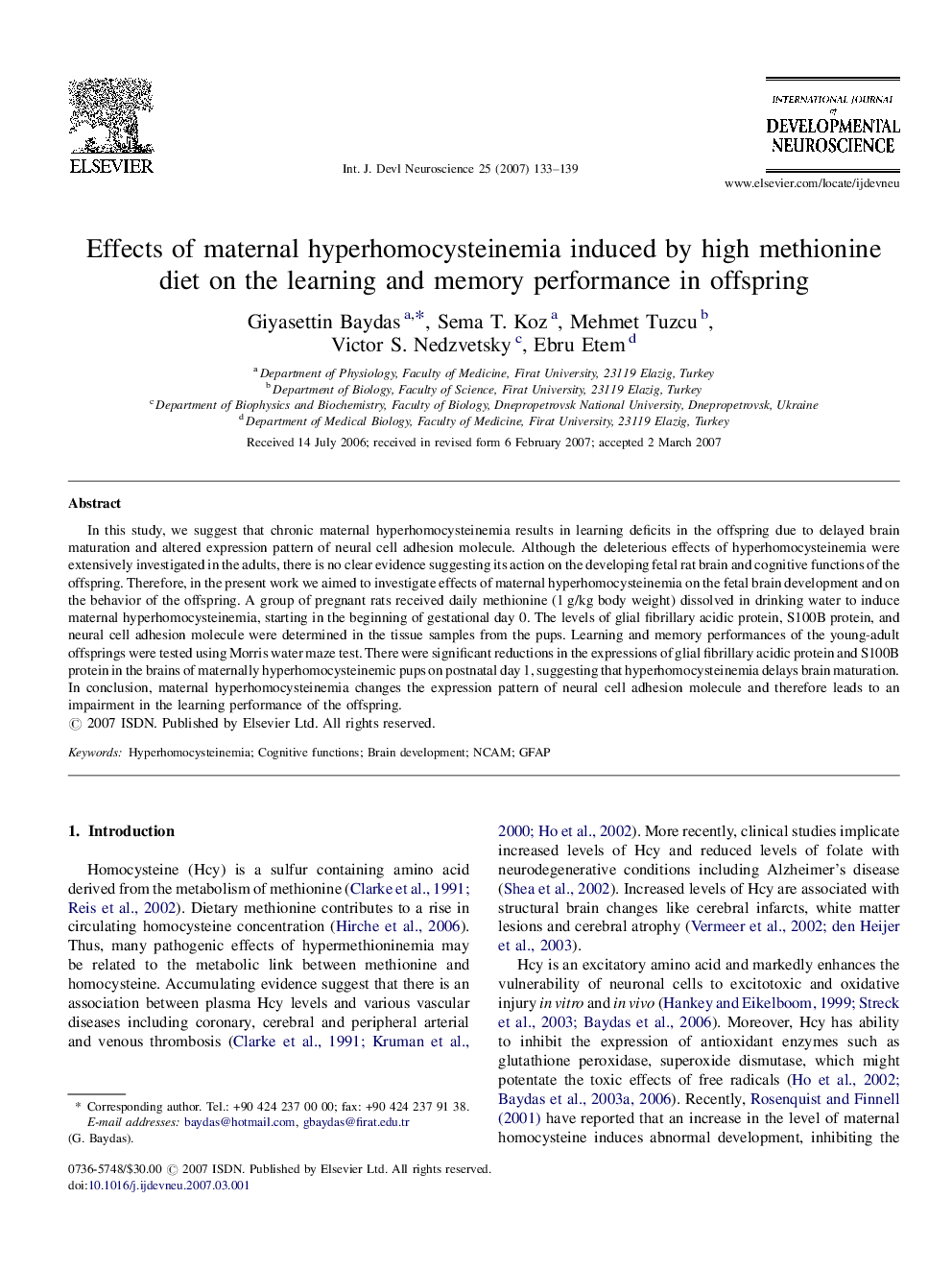| Article ID | Journal | Published Year | Pages | File Type |
|---|---|---|---|---|
| 2787213 | International Journal of Developmental Neuroscience | 2007 | 7 Pages |
In this study, we suggest that chronic maternal hyperhomocysteinemia results in learning deficits in the offspring due to delayed brain maturation and altered expression pattern of neural cell adhesion molecule. Although the deleterious effects of hyperhomocysteinemia were extensively investigated in the adults, there is no clear evidence suggesting its action on the developing fetal rat brain and cognitive functions of the offspring. Therefore, in the present work we aimed to investigate effects of maternal hyperhomocysteinemia on the fetal brain development and on the behavior of the offspring. A group of pregnant rats received daily methionine (1 g/kg body weight) dissolved in drinking water to induce maternal hyperhomocysteinemia, starting in the beginning of gestational day 0. The levels of glial fibrillary acidic protein, S100B protein, and neural cell adhesion molecule were determined in the tissue samples from the pups. Learning and memory performances of the young-adult offsprings were tested using Morris water maze test. There were significant reductions in the expressions of glial fibrillary acidic protein and S100B protein in the brains of maternally hyperhomocysteinemic pups on postnatal day 1, suggesting that hyperhomocysteinemia delays brain maturation. In conclusion, maternal hyperhomocysteinemia changes the expression pattern of neural cell adhesion molecule and therefore leads to an impairment in the learning performance of the offspring.
